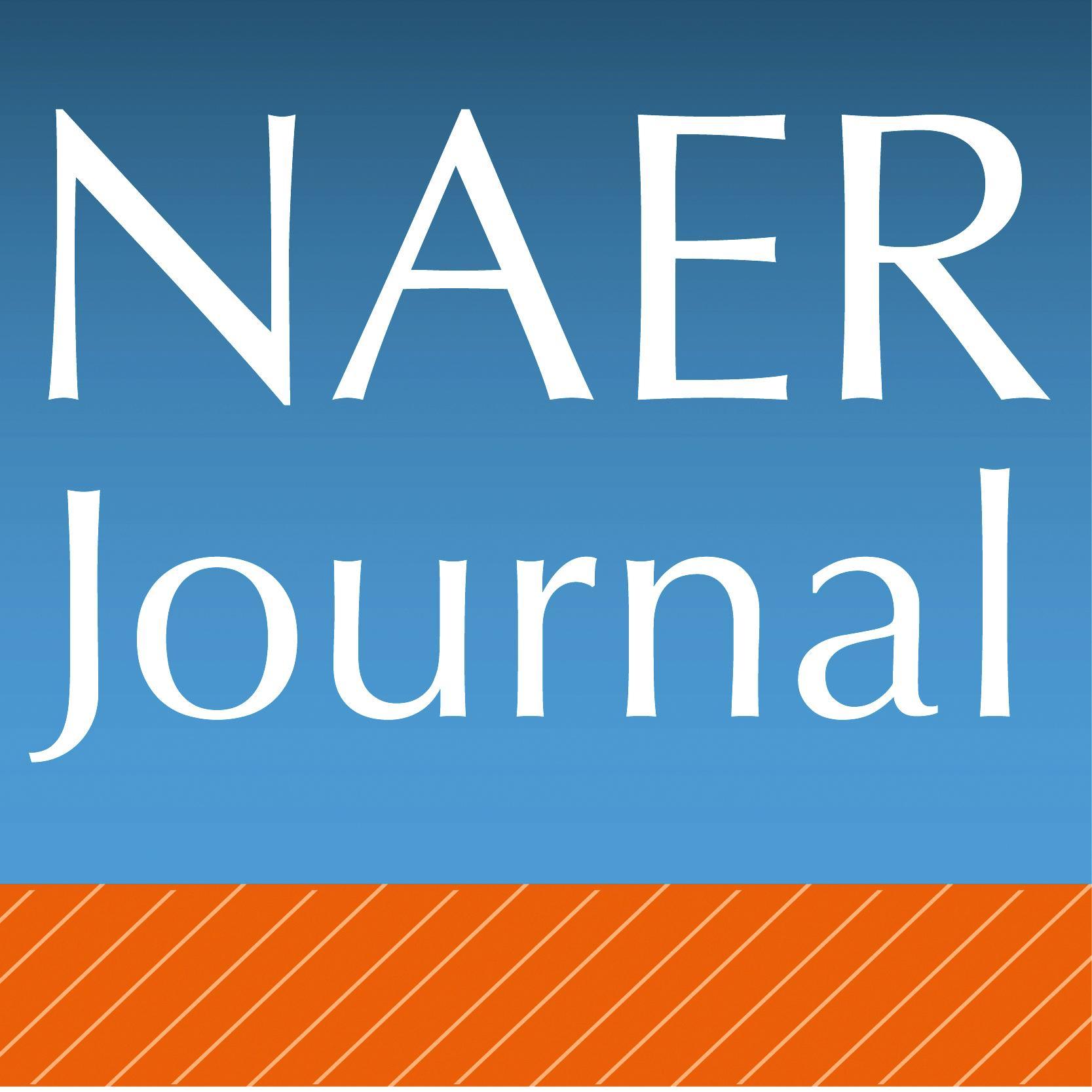Distracciones y comprensión durante la lectura en digital: una revisión sistemática
Resumen
Leer en un medio digital es una tarea compleja y multifactorial. La influencia del medio sobre la comprensión puede verse moderada por diferentes factores. La atención durante la lectura puede verse desplazada por una distracción. El efecto sobre la comprensión dependerá de los procesos cognitivos involucrados. Existe cierta predisposición a la multitarea, la cual implica un coste que afecta a la tarea principal. Esta investigación hace una revisión de los tipos de distracciones que tienen lugar durante la lectura y su efecto en la comprensión lectora. Además, se analizan los moderadores del efecto negativo encontrados o contemplados en estos estudios. Inicialmente, se encontraron 278 estudios, de los cuales 12 fueron incluidos en la revisión final tras aplicar los criterios de elegibilidad y evaluación de la calidad. Los resultados indican que el uso de un medio digital se ve condicionado por distracciones visuales, multitarea y las funciones interactivas, siendo su efecto sobre variables como el tiempo de lectura o la comprensión lectora heterogéneo. Sin embargo, parece constatarse que una mayor carga cognitiva de la distracción afecta al rendimiento durante la lectura. Por otra parte, moderadores como el interés o la relectura ayudan a compensar el efecto negativo. Un uso exitoso de los medios digitales en el aprendizaje pasa por conocer las problemáticas que pueden surgir y crear un entorno que mitigue los posibles efectos negativos.
Descargas
-
Resumen2019
-
PDF1473
-
Infografía2
Citas
Altamura, L., Salmerón, L. y Kammerer, Y. (2022). Instant messaging multitasking while reading: a pilot eye-tracking study. Symposium on Eye Tracking Research and Applications (ETRA ’22). https://doi.org/10.1145/3517031.3529237
Annisette, L. E., y Lafreniere, K. D. (2017). Social media, texting, and personality: A test of the shallowing hypothesis. Personality and Individual Diffences, 115, 154–158. https://doi.org/10.1016/j.paid.2016.02.043
Arrington, C.N., Kulesz, P.A., Francis, D.J., Fletcher, J.M., Barnes, M.A (2014). The Contribution of Attentional Control and Working Memory to Reading Comprehension and Decoding. Scientific Studies of Reading, 18 (5), 325-346. http://www.tandf.co.uk/journals/titles/10888438.asp
Baron, N., Calixte, R. y Havewala, M. (2016). The Persistence of Print among University Students: An Exploratory Study. Telematics and Informatics, 34. https://doi.org/10.1016/j.tele.2016.11.008
Biedermann, Daniel & Kister, Stella & Breitwieser, Jasmin & Weidlich, Joshua & Drachsler, Hendrik. (2023). Use of digital self-control tools in higher education – a survey study. Education and Information Technologies, 29, 1-22. https://doi.org/10.1007/s10639-023-12198-2
Bowman, L. L., Levine, L. E., Waite, B. M., y Gendron, M. (2010). Can students really multitask? An experimental study of instant messaging while reading. Computers & Education, 54(4), 927–931. https://doi.org/10.1016/j.compedu.2009.09.024
Bramer, W.M., Rethlefsen, M.L., Kleijnen, J. (2017). Optimal database combinations for literature searches in systematic reviews: a prospective exploratory study. Syst Rev, 6, 245 https://doi.org/10.1186/s13643-017-0644-y
Butterfuss, Reese & Kendeou, Panayiota. (2018). The Role of Executive Functions in Reading Comprehension. Educational Psychology Review, 30, 1-26. https: //doi.org/10.1007/s10648-017-9422-6
Chevet, G., Baccino, T., Vinter, A., Drai-Zerbib, V. (2022). What breaks the flow of reading? A study on characteristics of attentional disruption during digital reading. Front. Psychol. https://doi.org/10.3389/fpsyg.2022.987964
Clinton‐Lisell, V. (2021). Stop multitasking and just read: Meta‐analyses of multitasking's effects on reading performance and reading time. Journal of Research in Reading, 44(4), 787–816. https://doi.org/10.1111/1467-9817.12372
Copeland, L., Gedeon, T. (2015). Visual Distractions Effects on Reading in Digital Environments: A Comparison of First and Second English Language Readers, 506-516. https://doi.org/10.1145/2838739.2838762
Copeland, L., Gedeon, T., Caldwell, S. (2016). Mitigating distractions during online reading: An explorative study. IEEE International Conference on Systems, Man, and Cybernetics (SMC), Budapest, Hungary, 004830-004835. https://doi.org/10.1109/SMC.2016.7844993
Critical Appraisal Skills Programme (2024). CASP Qualitative Studies Checklist. https://casp-uk.net/checklists/casp-qualitative-studies-checklist-fillable.pdf
Critical Appraisal Skills Programme (2024). CASP Systematic Review Checklist. https://casp-uk.net/checklists/casp-systematic-review-checklist-fillable.pdf
Delgado, P., Vargas, C., Ackerman, R., Salmerón, L. (2018). Don't throw away your printed books: A meta-analysis on the effects of reading media on reading comprehension. Educational Research Review, 25, 23-38. https://doi.org/10.1016/j.edurev.2018.09.003.
Drai-Zerbib, V. & Baccino, T. (2017). Online effects of musical environment on text reading: Eye-tracking investigation. Psychologie Francaise, 62 (3), 233–247. https://doi.org/10.1016/j.psfr.2014.12.002
Florit, E., De Carli, P., Lavelli, M., Mason, L. (2022). Digital reading in beginner readers: Advantage or disadvantage for comprehension of narrative and informational linear texts? Journal of Computer Assisted Learning, 39. https://doi.org/10.1111/jcal.12754
Follmer, D.J. (2018). Executive Function and Reading Comprehension: A Meta-Analytic Review. Educational Psychologist, 53 (1), 42-60. https://doi.org/10.1080/00461520.2017.1309295
Freund, L., Kopak, R., & O’Brien, H. (2016). The effects of textual environment on reading comprehension: Implications for searching as learning. Journal of Information Science, 42(1), 79-93. https://doi.org/10.1177/0165551515614472
Kang, H. (2014). Understanding online reading through the eyes of first and second language readers: An exploratory study. Computers & Education, 73, 1-8. https://doi.org/10.1016/j.compedu.2013.12.005
Kiss, L., Linnell, K.J. (2024). The role of mood and arousal in the effect of background music on attentional state and performance during a sustained attention task. Sci Rep 14, 10892. https://doi.org/10.1038/s41598-024-61470-z
Kitchenham, B. y Charters, S. (2007). Guidelines for performing Systematic Literature Reviews in Software Engineering. Version 2.3. En EBSE Technical Report EBSE-2007-01. https://citeseerx.ist.psu.edu/viewdoc/summary?doi=10.1.1.117.471
Turner, K.H., Hicks, T., Zucker, L. (2020). Connected Reading: A Framework for Understanding How Adolescents Encounter, Evaluate, and Engage with texts in the Digital Age. Reading Research Quarterly, 55(2), 291–309. https://doi.org/10.1002/rrq.271
Lauricella, A. R., Aladé, F., Russo, M., Strevett, A., y Herdzina, J. (2022). Children's visual attention and comprehension from synchronous video book reading. Computers & Education, 191, 1–10. https://doi.org/10.1016/j.compedu.2022.104628
Lim, J., Whitehead, G. y Choi, Y. (2021). Interactive e-book reading vs. paper-based reading: Comparing the effects of different mediums on middle school students’ reading comprehension. System, 97, 102434. https://doi.org/10.1016/j.system.2020.102434
Luke, S. G., y Jensen, T. (2023). The effect of sudden-onset distractors on reading efficiency and comprehension. Quarterly Journal of Experimental Psychology, 76 (5), 1195-1206. https://doi.org/10.1177/17470218221108355
Mahtani, K.R. (2018). Eight steps to finding evidence for your systematic review — Centre for Evidence-Based Medicine (CEBM), University of Oxford. https://www.cebm.ox.ac.uk/resources/systematic-reviews/eight-steps-to- finding-evidence-for-your-systematic-review
Mohan, A. & Thomas, E. (2020). Effect of background music and the cultural preference to music on adolescents’ task performance. Int. J. Adolesc. Youth, 25 (1), 562–573. http://dx.doi.org/10.1080/02673843.2019.1689368
Mokhtari, K., Delello, J., Reichard, C. (2015). Connected Yet Distracted: Multitasking Among College Students, Journal of College Reading and Learning, 45:2, 164-180, http://10.1080/10790195.2015.1021880
Page, M. J., McKenzie, J. E., Bossuyt, P. M., Boutron, I., Hoffmann, T. C., Mulrow, C. D., ... & Moher, D. (2021). The PRISMA 2020 statement: an updated guideline for reporting systematic reviews. International Journal of Surgery, 88, 105906. https://doi.org/10.1016/j.ijsu.2021.105906
Ramírez-Peña, P., Pérez-Salas, C., Riffo, B. y Cerdán, R. (2022). Reading in Distracting Settings: The Role of Inhibition and Setting Goals in the Comprehension of Digital Academic Texts. Íkala Revista de Lenguaje y Cultura, 27, 66-83. https://doi.org/10.17533/udea.ikala.v27n1a04
Ramírez-Peña, P., Pérez-Salas, C.P., Ocares, B.R., y Otero, R.C. (2023). Comprehension of academic texts: role of executive functions and vocabulary. Nueva Revista del Pacifico, 79, 173 – 195. https://doi.org/10.4067/S0719-51762023000200173
Rayner, K. (1998). Eye movements in reading and information processing: 20 years of research. Psychological Bulletin, 124(3), 372–422. https://doi.org/10.1037/0033-2909.124.3.372
Rosen, L. D., Carrier, L. M., Cheever, N. A. (2013). Facebook and texting made me do it: Media-induced task-switching while studying. Computers in Human Behavior, 29(3), 948-958. https://doi.org/10.1016/j.chb.2012.12.001
Salmerón, L., Altamura, L., Delgado, P., Karagiorgi, A., Vargas, C. (2024). Reading comprehension on handheld devices vs. on paper: A narrative review and meta-analysis of the medium effect and its moderators. Journal of Educational Psychology. https://dx.doi.org/10.1037/edu0000830
Sánchez-Meca, J. (2022). Revisiones sistemáticas y meta-análisis en Educación: Un tutorial. Revista Interuniversitaria de Investigación en Tecnología Educativa (RIITE), 13, 5-40. https://doi.org/10.6018/riite.545451
Schwabe, A., Lind, F., Kosch, L., y Boomgaarden, H. G. (2022). No negative effects of reading on screen on comprehension of narrative texts compared to print: A meta-analysis. Media Psychology. Advance online publication. https://doi.org/10.1080/15213269.2022.2070216
Sheen, K. A., y Luximon, Y. (2021). Effects of in-app components, medium, and screen size of electronic textbooks on reading performance, behavior, and perception. Displays, 66, Article 101986. https://doi.org/10.1016/j.displa.2021.101986
Smallwood, J., y Schooler, J. W. (2006). The restless mind. Psychological Bulletin, 132, 946–958. https://doi.org/10.1037/0033-2909.132.6.946
Torres, N. G., y Constain, J. J. A. (2009). Improving reading comprehension skills through reading strategies used by a group of foreign language learners. How, 16(1), 55-70. https://dialnet.unirioja.es/descarga/articulo/5249670.pdf
Turner, K. H., Hicks, T., Zucker, L. (2019). Connected Reading: A Framework for Understanding How Adolescents Encounter, Evaluate, and engage with texts in the digital age. Reading Research Quarterly, 55. https://doi.org/10.1002/rrq.271
Unsworth, N., y McMillan, B. D. (2014). Similarities and differences between mind-wandering and external distraction: A latent variable analysis of lapses of attention and their relation to cognitive abilities. Acta Psychologica, 150, 14–25. https://doi.org/10.1016/j.actpsy.2014.04.001
Van der Weel, A., Mangen, A. (2022). Textual reading in digitised classrooms: Reflections on reading beyond the internet, International Journal of Educational Research, Volume 115, https://doi.org/10.1016/j.ijer.2022.102036
Vasilev, M. R., Parmentier, F. B., Angele, B., & Kirkby, J. A. (2019). Distraction by deviant sounds during reading: An eye-movement study. Quarterly journal of experimental psychology, 72(7), 1863–1875. https://doi.org/10.1177/1747021818820816
Wang, C.H., Salisbury-Glennon, J. D., Dai, Y., Lee, S., & Dong, J. (2022). Empowering College Students to Decrease Digital Distraction Through the Use of Self-Regulated Learning Strategies. Contemporary Educational Technology, 14(3). https://doi.org/10.30935/cedtech/12456
Werner, N. E., Cades, D. M., Boehm-Davis, D. A., Chang, J., Kahn, H., & Thi, G. (2011). What makes us resilient to interruptions? Understanding the role of individual differences in resumption. Proceedings of the Human Factors and Ergonomics Society Annual Meeting, 55(1), 296-300. https://doi.org/10.1177/1071181311551062
Woolley, G. (2011). Reading Comprehension. In: Reading Comprehension. Springer, Dordrecht. https://doi.org/10.1007/978-94-007-1174-7_2
Derechos de autor 2024 María Esperanza Velázquez Castillo

Esta obra está bajo una licencia internacional Creative Commons Atribución-NoComercial-CompartirIgual 4.0.
Aquellos autores que tengan publicaciones con esta revista aceptan los términos siguientes :
-
Los autores conservarán sus derechos de autor y garantizarán a la revista el derecho de primera publicación de su obra, el cuál estará simultáneamente sujeto a la Licencia Creative Commons Atribución no comercial compartir por igual 4.0 Internacional que permite compartir, copiar y redistribuir el material en cualquier medio o formato y adaptar, remezclar, transformar y construir sobre el material en los siguientes términos:
Reconocimiento - Debe dar el crédito apropiado, proporcionar un enlace a la licencia, e indicar si se han realizado cambios. Puede hacerlo de cualquier manera razonable, pero no de una manera que sugiere que el licenciante o su uso hace suya. No comercial - No puede utilizar el material con fines comerciales. Compartir bajo la misma - Si remezcla, transformar o crear sobre el material, se debe distribuir sus contribuciones bajo la misma licencia que el original. -
Los autores podrán adoptar otros acuerdos de licencia no exclusiva de distribución de la versión de la obra publicada (p. ej.: depositarla en un archivo telemático institucional o publicarla en un volumen monográfico) siempre que se indique la publicación inicial en esta revista.
-
Se permite y recomienda a los autores difundir su obra a través de Internet (p. ej.: en archivos telemáticos institucionales o en su página web) antes y durante el proceso de envío, lo cual puede producir intercambios interesantes y aumentar las citas de la obra publicada. (Véase El efecto del acceso abierto).
-
En cualquier caso, el Equipo Editorial entiende que las opiniones vertidas por los autores son de su exclusiva responsabilidad.
















